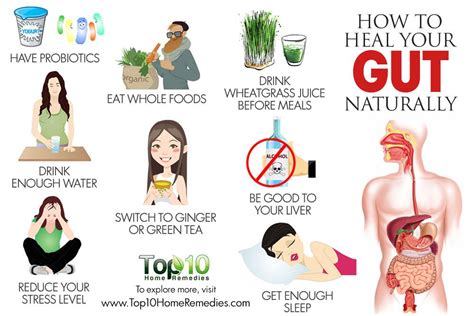How to Heal Your Gut: A Comprehensive Guide to Gut Health
The gut. Often overlooked, yet it's the powerhouse of our overall health. From digestion and nutrient absorption to immunity and even mood regulation, a healthy gut is essential for a healthy life. But what if your gut isn't feeling so great? This comprehensive guide will walk you through practical steps to heal your gut and improve your overall well-being.
Understanding Gut Issues: Identifying the Root Cause
Before diving into solutions, it's crucial to understand what might be causing your gut problems. Common gut issues include bloating, gas, constipation, diarrhea, and abdominal pain. These symptoms can stem from various factors:
- Diet: Processed foods, excessive sugar, and unhealthy fats can wreak havoc on your gut microbiome.
- Stress: Chronic stress significantly impacts gut health through the gut-brain axis.
- Infections: Bacterial or viral infections can disrupt the balance of gut bacteria.
- Medications: Certain medications, like antibiotics, can negatively affect gut flora.
- Underlying Conditions: Conditions like irritable bowel syndrome (IBS), Crohn's disease, and celiac disease can cause significant gut problems.
Key Strategies for Gut Healing
Healing your gut requires a holistic approach encompassing dietary changes, lifestyle modifications, and potentially professional guidance. Here's a breakdown of effective strategies:
1. Diet: Fueling Your Gut for Optimal Health
What to Include:
- Fiber-Rich Foods: Fruits, vegetables, and whole grains are essential for feeding beneficial gut bacteria. Think: berries, leafy greens, broccoli, oats, and lentils.
- Prebiotics: These non-digestible fibers act as food for probiotics. Find them in: bananas, onions, garlic, and asparagus.
- Probiotics: Live microorganisms that promote gut health. Sources include: yogurt, kefir, sauerkraut, and kimchi. (Note: Probiotic supplements are widely available, but consult a doctor before starting any supplement regimen).
- Fermented Foods: These foods naturally contain probiotics and enhance gut diversity.
- Anti-inflammatory Foods: Focus on foods with anti-inflammatory properties like turmeric, ginger, and fatty fish.
What to Limit or Eliminate:
- Processed Foods: These are often high in sugar, unhealthy fats, and additives that can disrupt gut balance.
- Sugar: Excessive sugar feeds harmful bacteria and can contribute to inflammation.
- Gluten: For those with gluten sensitivity or celiac disease, eliminating gluten is crucial.
- Dairy (Optional): Some individuals experience digestive discomfort from dairy. Consider eliminating it temporarily to see if it improves your symptoms.
- Alcohol: Excessive alcohol consumption can negatively impact gut health.
2. Lifestyle Changes: Supporting Gut Health Beyond Diet
- Manage Stress: Practice stress-reducing techniques like yoga, meditation, or deep breathing exercises.
- Prioritize Sleep: Adequate sleep is vital for gut repair and regeneration. Aim for 7-9 hours of quality sleep per night.
- Stay Hydrated: Water is essential for proper digestion and overall health.
- Gentle Exercise: Regular physical activity supports gut motility and overall well-being.
3. When to Seek Professional Help
If your gut issues persist despite lifestyle changes, it's important to consult a healthcare professional. They can perform tests to identify underlying conditions and recommend appropriate treatment. Conditions like IBS, Crohn's disease, or celiac disease require specific medical attention.
Conclusion: Your Journey to a Healthier Gut
Healing your gut is a journey, not a race. Be patient with yourself, listen to your body, and celebrate small victories along the way. By implementing the strategies outlined above, you can significantly improve your gut health and experience the positive ripple effect on your overall well-being. Remember to consult your doctor or a registered dietitian for personalized advice and guidance.
